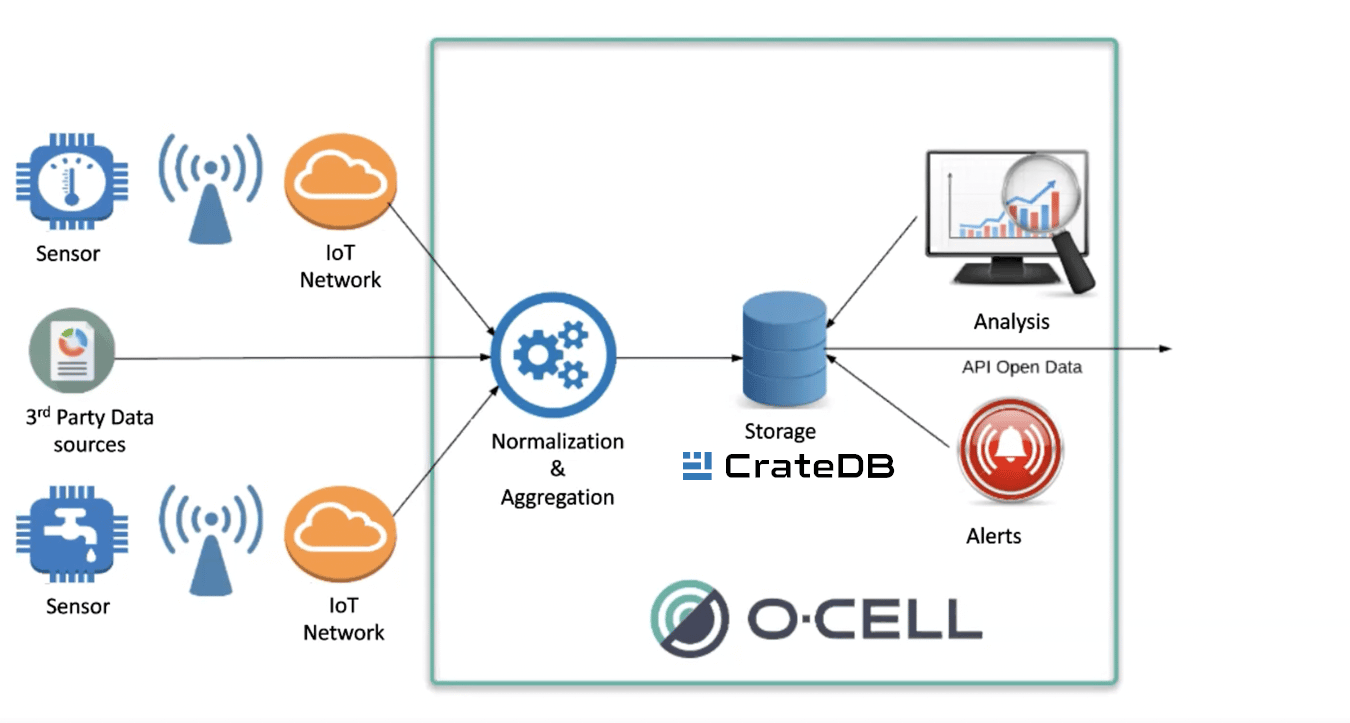O-CELL: Reducing the Environmental Impact of Infrastructures with Real-Time Monitoring
Founded in 2017, O-CELL is a French company that aims to reduce the environmental footprint. O-CELL created a real-time monitoring solution for buildings and campsites, contributing to reduce energy and water waste and lower the ecological impact of infrastructures.
Challenge: to reduce the environmental impact of infrastructures
At the beginning of O-CELL's project, the team sought to leverage new technology to solve existing problems. O-CELL identified a matching use case in a small town near Paris that wanted to build a living lab to experiment smart cities concepts.
O-CELL needed to have a multi-purpose platform that could collect near real-time energy consumption predictions and other environmental parameters and provide easy-to-read dashboards for the city's representatives, and data access for the technical staff and detect abnormal behaviour.
Solution: real-time monitoring of building and equipment
O-CELL was able to design a flexible solution built around dedicated services to ingest, process, and present data. There were several things to consider regarding processing power and storage, like reliability and scalability.
High volume of data is sent to O-CELL’s ingestion framework which will then decode, normalize and store the data in CrateDB.
Today, O-CELL has many well-known groups as customers. This solution helps them understand their facilities' consumption and lower their bills by receiving alerts when abnormal situations are detected.
 High Level Platform Architecture with CrateDB
High Level Platform Architecture with CrateDB
Choosing the right database: CrateDB becomes part of the solution
O-CELL's Co-Founder shares that they had to make the right choice from day one. During their technology assessment, they discovered CrateDB, which solves many of the well-known nightmares that one can have with traditional databases. However, before going with CrateDB, O-CELL explored other options.

O-CELL was looking for a database that solved the issues they had in the past with standard databases like Oracle, MySQL and others. They were looking to solve several issues like replication, no data loss and no service interruption.
Scalability was also a big factor and an issue to solve for O-CELL, mostly in terms of storage and processing power and the fact that CrateDB allowed to add nodes at any time, to add more processing power and increase storage were some of the reasons why CrateDB caught their attention.

One of the basic goals of the system was to be extensive and able to store many data types and add new ones easily. The data is sent from the sensors as binary frames and encoded according to the sensors' manufacturer's specifications.
CrateDB allows O-CELL to store all the indicators produced by the sensors simultaneously into one single database row, which is excellent for storage and query performance.

Benefits
O-CELL has been using CrateDB since the early stages of its project. As a small company, they have limited resources and must use them wisely. With a database like CrateDB, which needs very little maintenance, their team doesn't waste time solving, for example, replication issues.
For O-CELL, choosing CrateDB has clear advantages:
- Flexibility to add more processing power
- Increased storage capacity
- Ability to ingest high volumes of data
- Highly scalable
- Support of SQL
- Support for Azure
- Ideal for time series
Charles-Edouard Ruault also highlights the clustering and sharding mechanism, which ensure that data is replicated to at least another machine, meaning that the failure will not impact your whole system, no data loss, no downtime.
Recently, O-CELL explored several CrateDB versions, version 5 being the most recent, and there are several improvements that Charles-Edouard Ruault highlights, including performance and SQL and PostgreSQL compatibility.
O-CELL integrated other tools with CrateDB, like Tomcat with Java applications.

O-CELL considers CrateDB professional support a big benefit for their project.
There was a time when the platform was slowing down, impacting O-CELL's clients. Thanks to CrateDB’s support, O-CELL managed to solve the problem quickly and explaining it to the customers, making the process of handling it very smooth and much less stressful.
Watch the webinar with O-CELL, where Charles-Edouard Ruault describes this use-case in a 40-minutes.